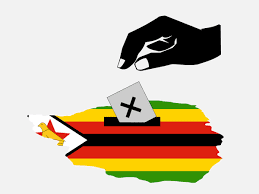APA-Harare (Zimbabwe) Rights group Human Rights Watch (HRW) has warned of the possibility of another disputed election in Zimbabwe amid allegations that the Harare authorities have closed up the democratic space by weaponising the criminal justice system against political opponents.
In a research report released Thursday, HRW said President Emmerson Mnangagwa’s government has failed to take necessary steps to ensure that general elections slated for August 23 meet international standards for free and fair elections.
The 44-page report titled “‘Crush Them Like Lice’: Repression of Civil and Political Rights Ahead of Zimbabwe’s August 2023 Election,” said the seriously flawed electoral process threatens the fundamental rights of Zimbabweans to freely choose their representatives.
It said the electoral process “has been undermined by the authorities’ adoption and use of repressive laws, the Zimbabwe Electoral Commission’s (ZEC) lack of impartiality, the Zimbabwe Republic Police’s partisan conduct and use of intimidation and violence against the opposition, the opposition’s lack of access to voter rolls, and impunity for individuals responsible for election-related abuses.”
“The authorities have weaponised the criminal justice system against the ruling party’s opponents,” the report said.
It added: “Civil society activists and government critics expressed strong fears that the authorities intended to use the Private Voluntary Organisations Act and other laws to criminalise their activities ahead of the election.”
An amendment to the Private Voluntary Organisations (PVO) Act was passed by parliament early this year and is awaiting Mnangagwa’s assent.
The amendment would prohibit PVOs from political involvement and give the newly established Office of the Registrar of PVOs the power to penalise non-compliant organisations, including deregistration of those that break the law.
Critics say the amendments are targeted at non-governmental organisations (NGOs) that support pro-democracy groups.
The Harare authorities, however, accuse some NGOs of being used as conduits by Western governments for funding subversive activities in the country.
HRW also cited the Criminal Law Codification and Reform Amendment Bill 2022, commonly known as the “Patriotic Bill,” which was signed into law in July.
The law contains “overly broad provisions that criminalise the rights to freedom of expression, peaceful assembly, and association.”
“The inability of many candidates to campaign freely and openly throughout Zimbabwe raises serious concerns about whether the election results will reflect the political will of Zimbabwe’s people,” said Idriss Ali Nassah, HRW senior Africa researcher and lead author of the report.
The report also accused the police of selectively using the Maintenance of Peace and Order Act of 2019 to deny the opposition permission to hold meetings and campaign rallies, while allowing the governing ZANU PF to meet without hindrance.
The report comes as Zimbabwe has lately witnessed acts of political violence involving ZANU PF and main opposition Citizens Coalition for Change (CCC).
Violence, intimidation, harassment, and repression linked to ZANU PF and aimed principally at CCC members and civil society activists have restricted civic and political space.
“The Zimbabwe government needs to take concrete measures before the election to meet its obligations under national and international law to allow people to vote free of intimidation, fear, and violence,” Nassah said.
“So far nothing indicates the authorities are willing to do that.”
JN/APA


